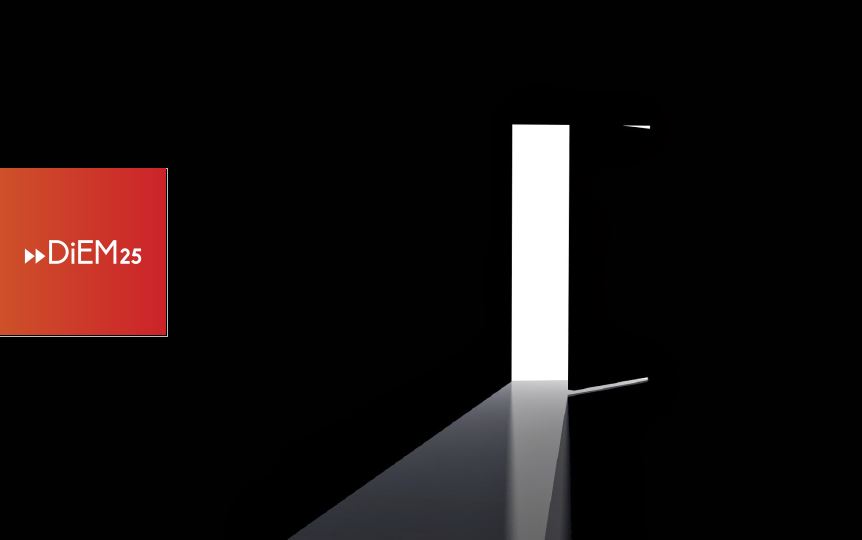The Eurogroup Made Simple
The Eurozone is the largest and most important macro-economy in the world.
And yet,
this gigantic macro-economy features only one institution that has legal
status: the European Central Bank, whose charter specifies what powers
the Frankfurt-based institution has in its pursuit of a single
objective: price stability.
Which leaves the question begging:
“What about economic goals, beyond price
stability, like development, investment, unemployment, poverty,
internal imbalances, trade, productivity?”
“Which EU body decides the Eurozone’s policies on these?”
The Eurogroup is not subject to European Law
Most people believe that the answer is:
the Eurogroup. Indeed, it is in the Eurogroup where the crucial
decisions are reached on which the present and future of Europe depend.
Except that the Eurogroup does not exist in European law!1
Without written rules, or legal process, the Eurogroup makes important
decisions that are subsequently rubber-stamped, without any serious
debate, at the EU’s Economic and Financial Affairs Council (Ecofin).2
The lack of written rules or legal
procedures is not the only problem. There are two other problems that
Europeans should know about. One is that the troika dominated the
Eurogroup and imposes a decision-making process in which the finance
ministers are neutered, forced to make decisions on the basis of
next-to-no information. The other is the outrageous opacity of the
Eurogroup’s proceedings.
The troika dominates the Eurogroup
Every Eurogroup discussion, in every meeting, proceeds in the following order:
First up (whatever the topic under
discussion; e.g. the Greek ‘bailout’, the French national budget) the
representatives of the troika speak, beginning with the EU’s Economic
and Financial Affairs Commissioner (Pierre Moscovici), moving to the
President of the ECB (Mario Draghi, or Benoît Cœuré in Draghi’s absence)
and finishing off with the representative of the International Monetary
Fund (Christine Lagarde, or Poul Thomsen in her absence). Only then do
finance ministers get an opportunity to speak (with the minister of the
member-state whose ‘case’ is under discussion going first). This means
that, before any of the finance ministers speak, the troika has already
shaped the ‘climate’.
Remarkably, when the ministers get to
speak, they do so without a single sheet of A4 in front of them
containing information, data, briefings etc. on the issue under
discussion. For example, while discussing the Greek crisis, during the
meetings in which I represented the Greek government, I was not even
allowed to email to my fellow finance ministers our proposals. They,
therefore, passed judgment on the Greek proposals without ever having
seen them. All they had was what the troika representatives said and
what I had said. Their word against mine!
Outrageous opacity
After the first Eurogroup I ever
attended (which lasted ten hours, all of which were focused on Greece), I
asked my secretary for the transcripts of the meeting, so that I could
remind myself of who-had-said-what-when, before I could brief the rest
of my government. To my horror she came back to me with the
extraordinary news that: “There are no minutes, records or transcripts.”
This was unbelievable. The room in which
the Eurogroup meetings are held is full of microphones, cameras and
screens reproducing every speech made in real time. That there was no
record of the meeting is both unbelievable and scandalous.
Is it any wonder that the economic crisis of the Eurozone is still in full swing six years after it began?
In 2009 unemployment jumped from an
average of around 5% to 12% both in the United States and in the
Eurozone. In the US it has fallen back to where it was then. In the
Eurozone it is stuck at 12%.
An important reason why the Eurozone has failed to recover is the way that the Eurogroup is run.
The domination of a
troika more interested in preserving its power over Europeans (than in
Europe’s recovery) and the complete lack of transparency in the
decision-making process (which allows for the reproduction of failed
policies by an unfettered troika) is what makes the Eurogroup a clear
and present danger for Europe’s future.
What can be done?
The first step must be to lift the veil of secrecy, so that Europeans have the chance to determine if the Eurogroup is working in their favour. Please sign and share DiEM25’s petition to let light in!


Nessun commento:
Posta un commento